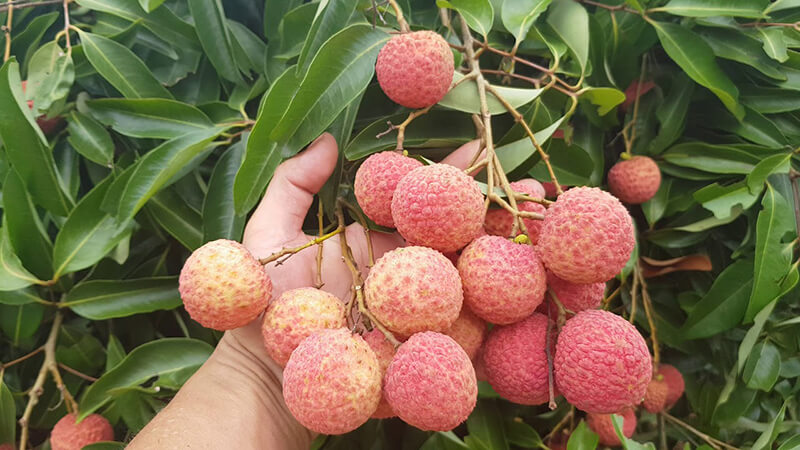Our country has many kinds of litchi, but Thanh Ha lychee is known as the “queen” of litchis, with a sweet, cool taste, not harsh, a faint fragrance that still lingers after eating.
 Thanh Ha lychee
Thanh Ha lychee
Thanh Ha’s fertile land has created favorable conditions for this plant to grow well. When ripe , the lychee has a dark, slightly rough skin, the rice is thick and succulent, the seeds are small, dark brown , especially the older the tree, the smaller the seeds and the fruit is laden.
Reference price : 40,000 – 80,000 VND/ 1kg
Reference address : Market in Thanh Khe commune, Thanh Ha, Hai Duong
Source: Collected internet.
Vietnam is a country on an S-shaped strip of land, located in the center of Southeast Asia, in the east of the Indochina peninsula, to the north by China, to the west by Laos and Cambodia, and to the southeast overlooking the sea. East and Pacific. Vietnam's coastline is 3,260 km long, and its land border is 4,510 km long. On land, from the northernmost point to the southernmost point (as the crow flies) is 1,650km long, from the easternmost point to the westernmost point the widest place is 600km (Northern region), 400km (Southern region), the narrowest place is 50km (Quang Binh).
Costume is one of the important factors that differentiate Vietnamese culture from other countries in the world. The costumes not only mark the cultural traditions and customs of the Vietnamese people, but they are also the breath and soul of a nation.
Religion in Vietnam is quite diverse, including Buddhism (both Mahayana, Theravada and some modified groups such as Hoa Hao, Tu An Hieu Nghia); Christianity (including Catholicism and Protestantism); endogenous religions such as Cao Dai; and some other religions (Hinduism and Islam). Different types of folk beliefs also have a lot of influence. The majority of Vietnamese people consider themselves non-religious, even though they still go to religious sites several times a year...
Folk theater has many forms and has existed for a long time such as Cheo singing, Tuong singing, water puppetry... and newer ones such as Cai Luong, folk opera. Cheo is a form of theatrical storytelling, using the stage and actors as a means of interacting with the public. The content of Cheo plays is taken from fairy tales and Nom stories, carrying profound realistic and ideological values, while also expressing Vietnamese ethnicity. Cheo stage is simple, with non-professional actors performing impromptu...